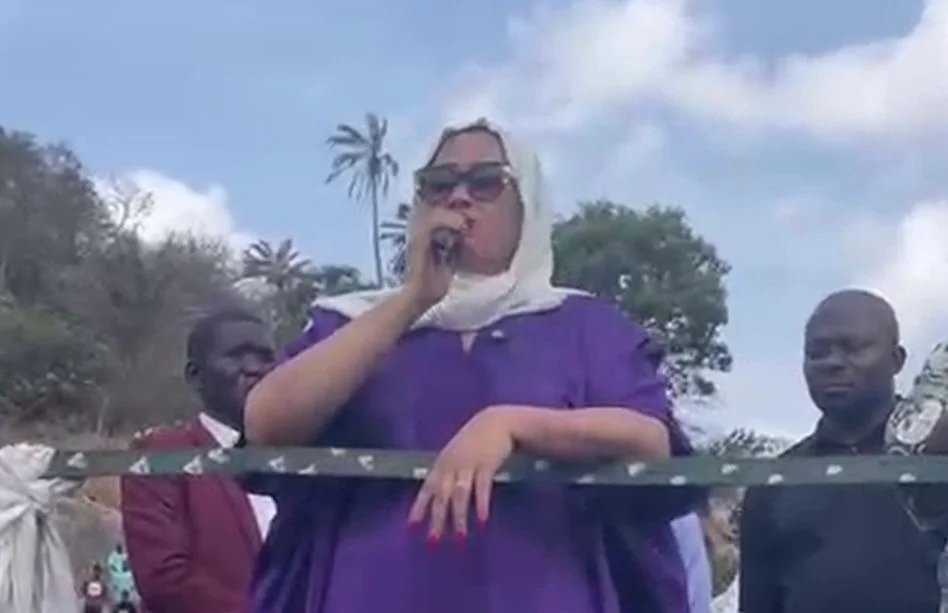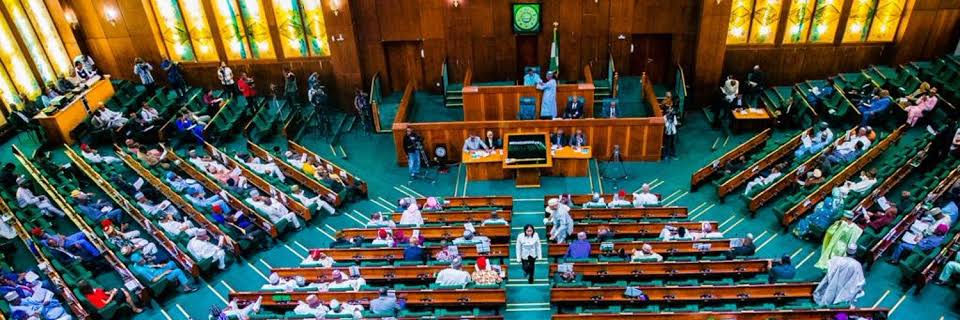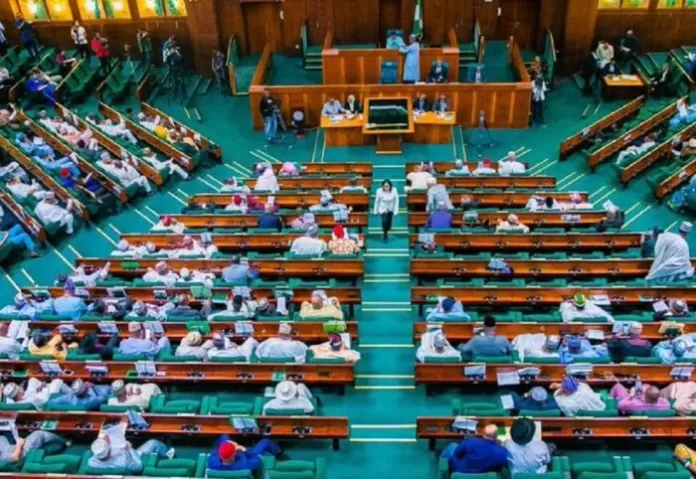Isaac Samuel
The Nigerian House of Representatives on Wednesday rejected the narrative advanced by the United States Senate that frames Nigeria’s security crisis as genocide against Christians or as state-sponsored persecution.
In a motion presented by Deputy Speaker Benjamin Kalu and supported unanimously by all members during plenary session, the House described the U.S. characterisation as a misrepresentation of Nigeria’s complex security landscape and a distortion of facts.
The motion is titled: “Urgent Need for a Coordinated Diplomatic and Domestic Response to the Proposed Nigeria Religious Freedom Accountability Act of 2025 (U.S. Senate Bill S.2747) and to Mischaracterisations of Nigeria’s Security and Religious-Freedom Landscape”
Presenting the motion, Kalu recalled that on September 9 2025, a bill titled the Nigeria Religious Freedom Accountability Act of 2025 (S.2747) was introduced in the United States Senate seeking to require the U.S. Secretary of State to designate Nigeria a “Country of Particular Concern” (CPC) and to impose sanctions on Nigerian officials under Executive Order 13818 (Global Magnitsky) and related authorities.
He noted that the U.S. Commission on International Religious Freedom (USCIRF) has in recent Annual Reports recommended Nigeria for CPC designation, citing persistent violations and state failures to protect against non-state actor abuses.
According to the deputy speaker, Nigeria’s Constitution guarantees freedom of thought, conscience and religion and bars adoption of a State religion.
He argued that successive administrations, security agencies, faith leaders and civil society continue to undertake measures to protect all worshippers and prosecute offenders, as reflected in the U.S. Department of State’s 2023 country chapter and prior reports.
He noted that insecurity in Nigeria is complex and multi-causal – driven by insurgency, criminal banditry, farmer-herder conflict, separatist violence and communal disputes – affecting citizens of all faiths
He said international reporting attributes a significant share of fatalities to terrorist groups and criminal gangs rather than State policy or a single religious dynamic.
The lawmakers expressed concern that external legislative actions based on incomplete or decontextualised assessments risk undermining Nigeria’s sovereignty, misrepresenting facts, straining strategic relations, and unintentionally emboldening violent actors.
While debating the motion, majority leader Julius Ihonvbere warned that as the U.S. Senate bill is being pursued, Nigeria must act quickly to counter it.
He wondered why misinformation about Nigeria’s religious dynamics has persisted abroad.
“The bill has been read twice on the floor of the US. Senate and referred to a committee as we speak. And if we do not take other steps to nip it in the board and it passes the Senate, to reverse it will take us a longer time and cost us even more resources.
“The main problem here comes from those who deliberately de-market Nigeria outside the country, including Nigerians. There is an agenda designed to rubbish some of the progress we have made so far.”
Speaking, member representing Obokun/Oriade Federal Constituency of Osun state, Oluwole Oke, expressed concern that the U.S. Senate’s narrative deliberately misrepresents Nigeria’s religious and security situation.
He stressed that thorough investigations are necessary to ensure Nigeria’s true circumstances are conveyed accurately to the international community
“I remain a little worried, Mr Speaker. This motion couldn’t have come at another time than this appropriate time. In a forum, I cited the case of Mr. President being a Muslim married to a Christian. I cited a case of an Islamist scholar in Katsina who was honored and on his way home he was murdered by bandits.
“This is a deliberate attempt to damage Nigeria image. I support and concur that this investigation should be thoroughly carried out.”
Lawmaker representing Kaita/Jibia Federal Constituency, Sada Soli, said there is need for Nigeria to strengthen parliamentary diplomacy and actively engage with U.S. lawmakers to clarify misconceptions.
Noting Nigeria’s strategic global importance, he argued that misrepresentations could impact international security and energy dynamics
“Mr. Speaker, this is the moment that this parliament should re-engineer its parliamentary diplomacy. I know how the U.S. government system has a tremendous interest of this country because of the strategic position of Nigeria in the world. The parliament should engineer its vigorous, aggressive parliamentary diplomacy and address this”, he stated.
Another member, Billy Osawaru, pointed out that global politics necessitates proactive diplomatic measures and that Nigeria currently lacks sufficient representation abroad to handle such matters effectively.
He warned that failing to address the issue could have broader implications for Africa, as Nigeria often serves as a reference point for the continent
“But what we are seeing here is global politics, and we cannot shy away from it. As we speak, I don’t think Nigeria has an ambassador to the United States.
On his part, member representing Ifo/Ewekoro Federal Constituency, Ibrahim Ayokunle Isiaka stressed the need for formal communication to the United Nations to ensure the international community is aware of Nigeria’s position.
Speaking, Jaha Ahmadu Usman argued that Nigeria’s growing population and regional significance make it critical not to allow sanctions or misrepresentations to proceed unchecked.
He proposed consolidating investigations under House committees to ensure accurate and non-duplicative reporting on religiously framed violence.
Adopting the motion after series of amendments, the House condemned all forms of violence and persecution against any person or group on the basis of religion or belief and commiserates with all victims irrespective of faith.
It also rejected the outright narratives that frame Nigeria’s security crisis as a singularly religious conflict or as State-sponsored persecution, and reaffirms Nigeria’s constitutional protections for freedom of religion and belief.
The lawmakers directed that the United Nations is made aware of US. action against Nigeria.
The House also directed the federal ministry of foreign Affairs and the Nigerian Embassy in Washington, D.C. to lodge a formal diplomatic demarche to the sponsors of S.2747 and relevant U.S. committees, transmitting empirical data and Nigeria’s official position
It further directed that the resolution be transmitted to the Presidency, Federal Ministry of Foreign Affairs, and Heads of Security Agencies; the United States Congress leadership (Senate Foreign Relations; House Foreign Affairs), the U.S. Department of State, and USCIRF; The African Union and ECOWAS Commissions.





